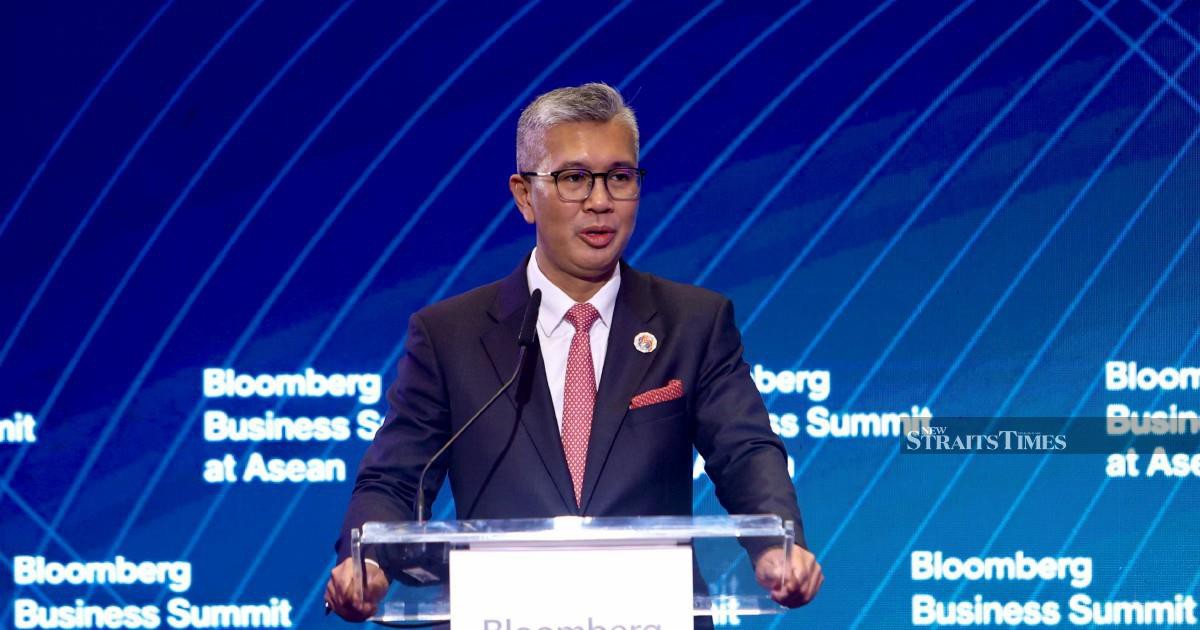KUALA LUMPUR: Malaysia’s Agreement on Reciprocal Tariffs (ART) with the United States does not prevent the country from imposing technology transfer requirements as part of its strategy to attract investment from Washington.
Investment, Trade and Industry Minister Tengku Datuk Seri Zafrul Tengku Abdul Aziz said that Article 3.4 of the agreement was designed to prevent forced technology transfers.
He said that such provisions were standard in most trade agreements signed by Malaysia. They ensure that companies are not compelled to surrender intellectual property rights, such as trade secrets or source codes, to the government as a condition for investing, selling, or operating in Malaysia.
“Most importantly, Article 3.4.2 provides an exemption allowing the Malaysian government, as a regulator, to access source codes, algorithms, and other proprietary technologies for legitimate regulatory and legal purposes. This includes investigations, judicial proceedings, maintenance of critical infrastructure, law compliance, and ensuring financial system stability,” he said in a statement today.
He was responding to claims by Bersatu president Tan Sri Muhyiddin Yassin regarding the ART agreement signed during last week’s Asean Summit.
Tengku Zafrul also denied allegations that the agreement compelled Malaysia to adopt the same measures or sanctions as the US, as suggested under Article 5.1.
He said that Malaysia retained legal and diplomatic autonomy.
“Key phrases such as ‘in accordance with its domestic laws and regulations’ and ‘within a mutually acceptable timeframe’ make it clear that Malaysia can manage its actions independently. Any measures taken only apply to issues of mutual economic concern,” he added.
Addressing concerns that Malaysia might lose sovereignty, Tengku Zafrul said that Article 5.2 would not strip Kuala Lumpur of its powers.
It merely reflected Malaysia’s commitment to cooperate on strategic trade regulation, consistent with domestic law, he said.
“Malaysia already operates under the Strategic Trade Act 2010, a framework that protects exporters and the domestic business community from secondary sanctions. This demonstrates Malaysia’s proactive stance as a trusted international trading partner, including with the US,” he said.
Responding to claims that the ART compromises sovereignty, Tengku Zafrul said that although Article 5.3 allowed US access to Customs data, such access would be strictly regulated.
“Data sharing must follow Malaysian regulatory procedures and domestic laws,” he said.
He also dismissed claims of unequal wealth transfer under Article 6.1.3, which references US$70 billion in US investment over 10 years and US$150 billion in procurement by Malaysian companies over five years.
“These commitments are purely commercial decisions by companies. Even without ART, these procurements would occur as part of existing business plans, such as Malaysia Aviation Group’s Boeing purchase announced in March,” he added.
Tengku Zafrul reaffirmed that the agreement did not compromise Malaysia’s control over strategic resources.
He said the country maintained its ban on exporting raw rare earth elements to encourage downstream industry development, generate high-skilled jobs, and retain technology locally.
“All facilitation measures and investments under ART will comply with Malaysian law and national policies. Value creation will take place domestically before any exports of processed products are permitted,” he added.
Tengku Zafrul said that ART negotiations differed from typical Free Trade Agreements.
Reciprocal tariffs are unilateral US taxes, and Malaysia must safeguard market access to protect national and economic interests.
“The government remained neutral, coordinated across ministries, and upheld Malaysia’s red-line policies on the Bumiputera Policy, Government Procurement Policy, and equity liberalisation in strategic sectors. ART guarantees that national sovereignty and economic interests guide implementation,” he said.
Tengku Zafrul said that Malaysia secured a tariff reduction from 25 per cent to 19 per cent — the lowest among Asean countries with a US trade surplus — and exemptions for 1,711 tariff lines covering key exports worth up to RM22 billion (US$5.2 billion).
“The US is one of Malaysia’s largest export markets, with bilateral trade worth RM325 billion in 2024. Rejecting ART would have risked reinstatement of higher tariffs, undermining export competitiveness and investor confidence. Predictability and stability are essential for business,” he said.
© New Straits Times Press (M) Bhd






